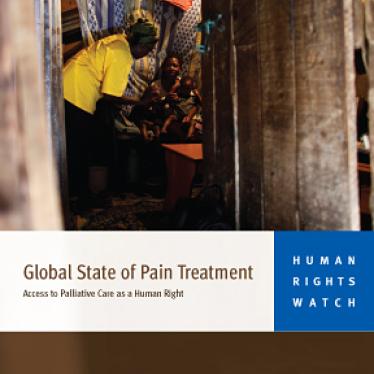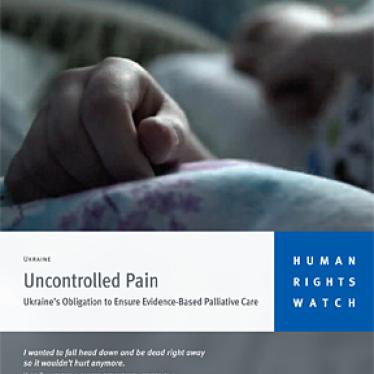The Russian government’s reform of its narcotics law will greatly help in the fight against HIV/AIDS, Human Rights Watch said today. Russia’s harsh drug laws and policies have long allowed police to abuse small-scale drug users and disrupt HIV prevention services like syringe exchange.
“Russia’s revised narcotics law is a crucial first step in fighting an AIDS epidemic that’s hitting injection drug users the hardest,” said Joanne Csete, director of the HIV/AIDS Program of Human Rights Watch. “The government now needs to ensure that injection drug users have access to clean syringes and opiate substitutes like methadone.”
The Kremlin’s federal decree number 231, which took effect on May 12, redefined the standards for criminal possession of narcotics in response to a request from the State Duma, the lower house of the national assembly. In December, the Duma had amended the criminal code to allow for alternatives to prison for small-scale drug users.
Under the decree, individuals charged with possession of small amounts of narcotics would be subject to administrative penalties but not criminal charges. Russia’s drug laws had long criminalized the possession of minute amounts of narcotics, which permitted police to target suspected drug users for harassment and bribes. Fear of imprisonment on drug possession charges has kept many drug users away from potentially life-saving health services, such as needle exchanges.
Human Rights Watch called on the Russian government to take measures that would ensure that all injection drug users have good access to sterile syringes and opiate substitution therapy. The Russian authorities must also end the exclusion of active drug users from government-provided antiretroviral treatment for AIDS.
In a report released in Moscow last month , Human Rights Watch identified the reform of the narcotics law as a crucial step toward containing the AIDS epidemic and respecting the rights of persons identified as drug users. Methadone and other opiate substitutes are central to HIV prevention since they enable injection drug users to stop injecting heroin, but these substitutes are currently illegal in Russia.
Between 1 and 2 million people, mostly young adults, are living with HIV in Russia. The country’s HIV/AIDS epidemic remains one of the fastest-growing in the world.
“Russia needs urgently to strengthen its fight against HIV/AIDS by ensuring HIV prevention services for everyone and treatment for all people living with HIV who need it,” said Csete. “This decree is a good first step.”






